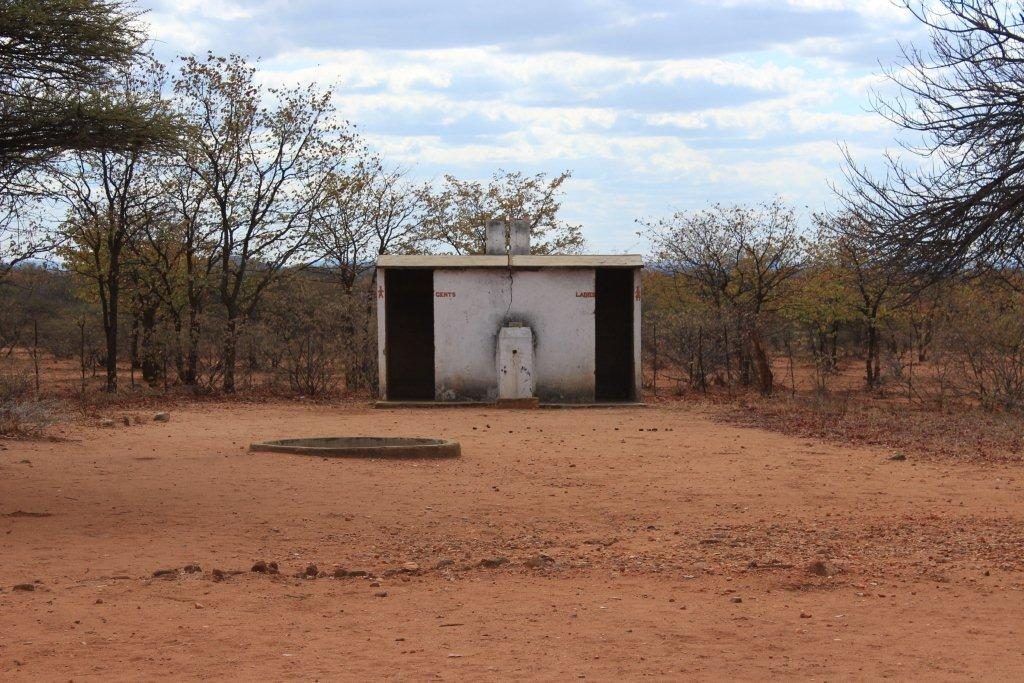June 28, 2012 – Bulawayo, Zimbabwe

Cows in Riverbed
Water is such an immense issue, isn’t it? Where I am right this instant, in Bulawayo, water is scarse. Not as scarse as outside of the city, though, where we drive by countless dry riverbeds, all full of sand and the hoofprints of horses and the footprints of other animals. I don’t know where animals and people go to find water, but am told it can be 20 kilometers for a person to get water. When they arrive at the water hole, the creek bed, the borehole, the well, they take time to get their water and then, they have 20 kilometers to get back home – this time carrying a 60 – 70lb jug of water on their head. This is HOURS from a person’s day. HOURS of walking under the hot sun in search of something that we Americans take for granted.
Animals survive more from the liquid they get from leaves and stems they chew on, even though these, too, are shriveled and brown. It is amazing to me to see how the local goats have adapted to life without much water, looking plump and healthy, even though they might not actually drink water but once a day, if that. Imagine how much more milk they’d produce if they had actual water to drink? This topic has been occupying my time these past two days, taking me to meetings with dam builders and borehole diggers. If we can find a partner to help us in this particular area in the villages where we work, life would be much sweeter for many. I keep plodding forward, researching, calling, writing, visiting, pestering, begging, and pleading. Someone, somewhere will answer. I am sure of it.

Bathoom in middle of no where
I don’t know how many times we leave the water running while washing dishes. The water running so it gets hot enough for us to enjoy a shower. The water running while we reach for a toddler who needs his hands cleaned.
After two weeks of very controlled water supplies, I’ve learned to bathe both Aiden and Julia using the water from one stardard size bucket. I can wash completely, hair and all, with less than half a bucket, reserving the other half to flush the toilet when the water is off. Will we remember to be this careful when we return home and water seems to be flowing everywhere, at little expense?
Another issue with water is the fact that without it, people can’t grow gardens properly. With this in mind, we are starting a small pilot project to see which vegetables grow best in these conditions, with which specific type of gardening (4×4, pallet, hanging, etc) types. We are enlisting the help of ECHO, an organization in Florida, to record our findings and to access seeds suitable for drought conditions. A big part of this project will be the use of manure from goats and chickens given to orphan families and tons of mulch to keep moisture in the ground. Stay in touch to hear how this project progresses…I promise it will be interesting and we’ll all learn a lot.

